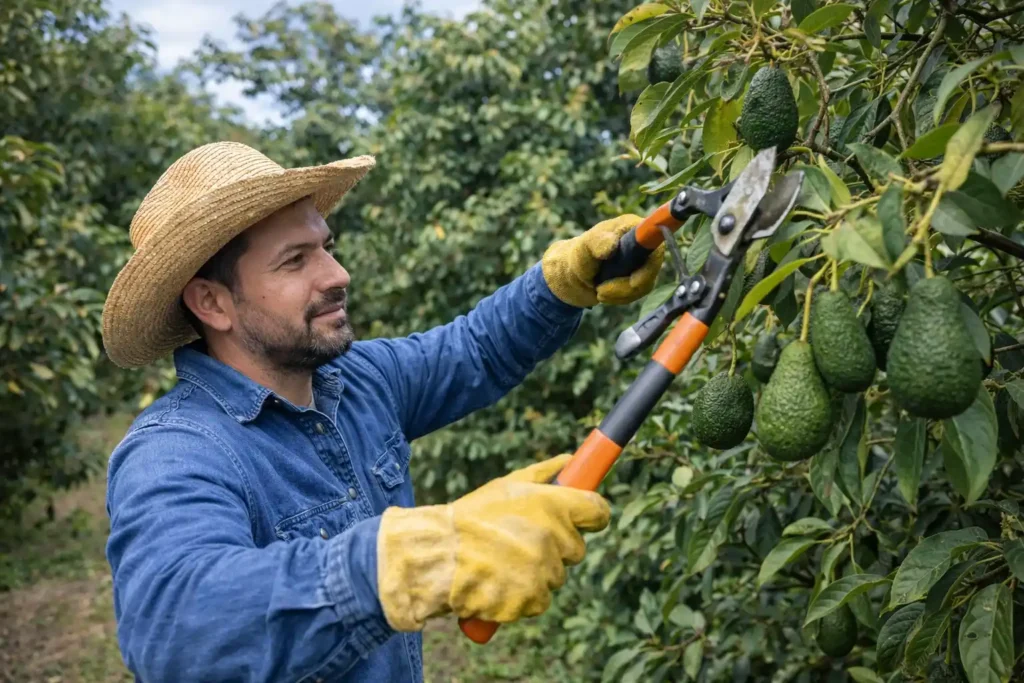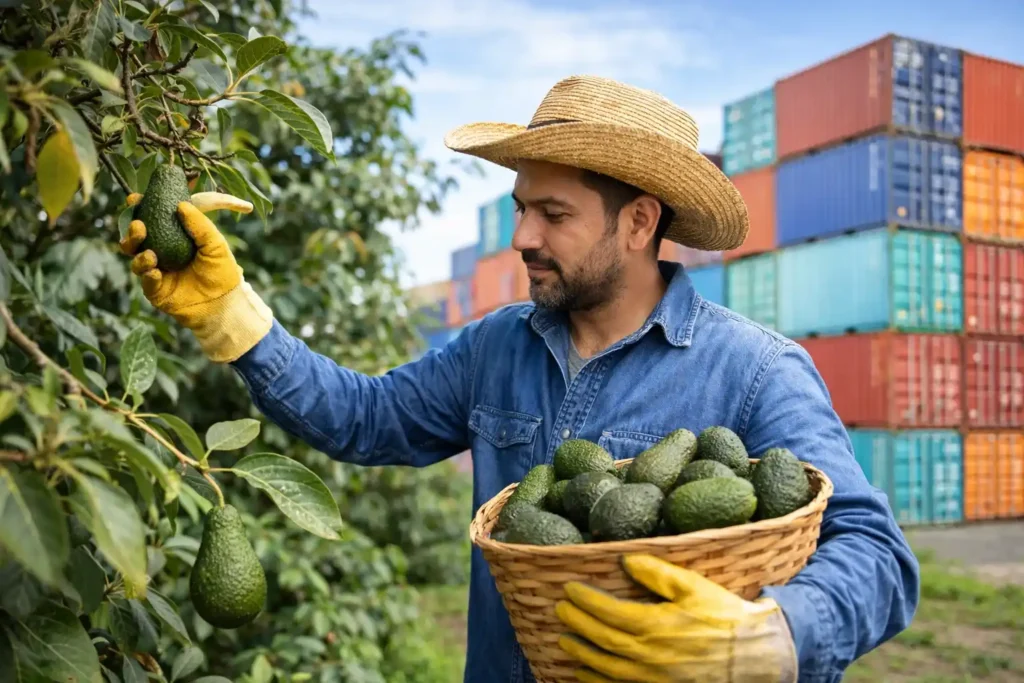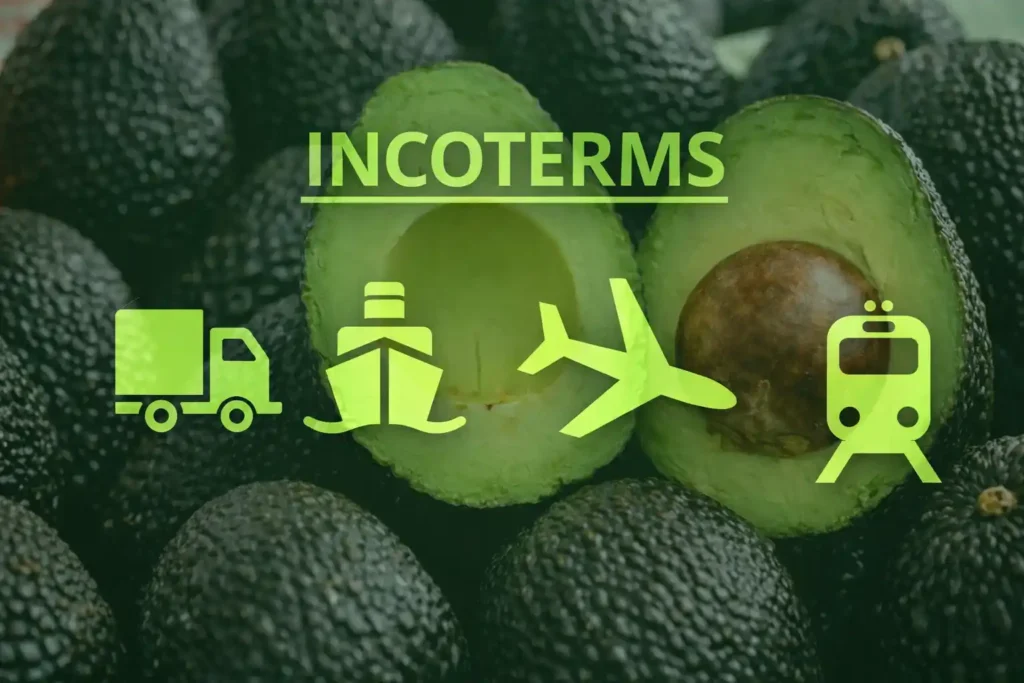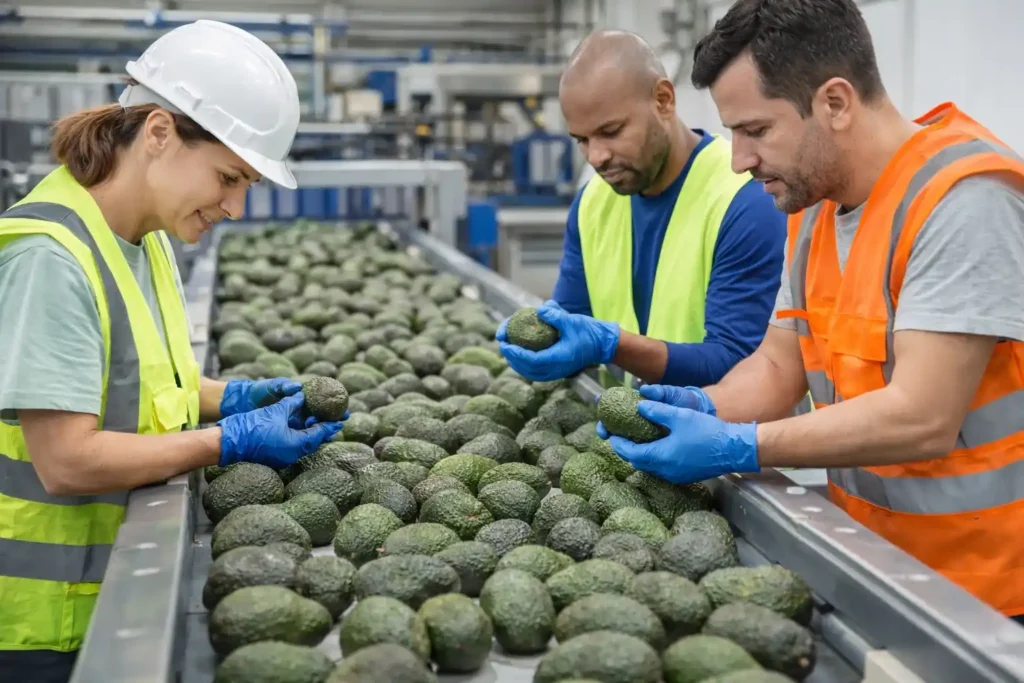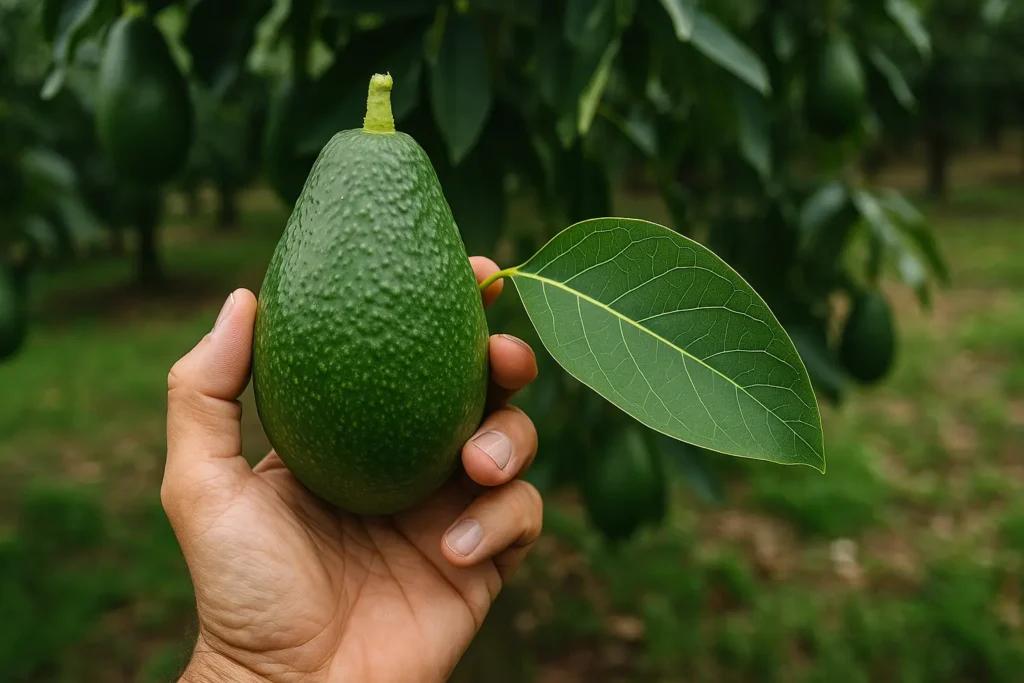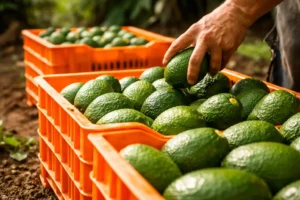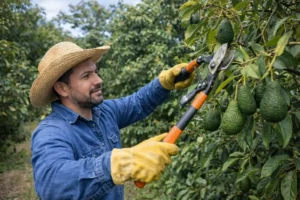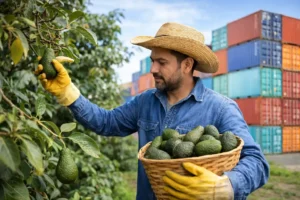The phytosanitary management of Hass avocado crops is a pillar that guarantees the quality, productivity and profitability of this fruit, which is in such high demand worldwide. A healthy crop not only reduces economic losses, it also ensures that the avocado meets export standards and reaches the consumer in optimal conditions.
In this article, we present a detailed approach on how to keep Hass avocado free from pests and diseases, ensuring its success in the global market.
Phytosanitary Management of Hass Avocado Cultivation
The phytosanitary management of Hass avocado crops consists of a set of strategies aimed at preventing, detecting and controlling pests, diseases and environmental factors that may affect the health of the tree and the quality of its production.
To minimize these risks, preventive and corrective practices are implemented, such as constant monitoring of the crop, the use of integrated control methods, and maintaining optimal soil and environmental conditions. Below, we will explore in detail the main phytosanitary practices that allow the Hass avocado crop to be kept in optimal conditions.
1. Monitoring and Prevention
The key to successful phytosanitary management of Hass avocado crops is prevention. Constant monitoring allows for early detection of anomalies and action to be taken before problems become more serious.
Monitoring techniques
- Drones and sensors: They allow aerial inspections of the crop, identifying irregularities in the foliage and soil.
- Sticky traps and pheromones: They are used to capture insects and monitor the presence of specific pests.
- Manual review: Inspect trees periodically, checking the health of leaves, fruits and roots.
This comprehensive approach allows for a rapid response to any signs of pests or diseases.
2. Pest Control in Hass Avocado Cultivation
Pests represent one of the main threats to Hass avocados, affecting their growth, yield and quality. Implementing proper phytosanitary management of Hass avocado crops reduces their impact.
Common pests in Hass avocado cultivation
Some of the most common pests include:
- Trips (Frankliniella spp.): They cause damage to the foliage and fruit, reducing the quality of the avocado. They are controlled by the use of natural biocontrollers and specific insecticides.
- Red spider (Oligonychus perseae): Causes spots and weakening of leaves. Its control involves the application of acaricides and the introduction of predatory mites.
- Scales (Coccidae): They feed on the tree's sap, weakening it progressively. Biological control and the use of horticultural oils are effective methods to combat them.
Pest control strategies
Efficient phytosanitary management of Hass avocado crops must be based on an integrated approach that combines:
- Biological control: Introduction of natural predators such as ladybirds and parasitoid wasps.
- Cultural practices: Elimination of weeds and pruning remains that could serve as a refuge for pests.
- Responsible use of insecticides: Application of selective products to minimize environmental impact.
Hass Avocado Diseases and Their Phytosanitary Management
Fungal and bacterial diseases can seriously affect Hass avocado production. Early detection and proper management prevent their spread.
Most common diseases of Hass avocado
- Anthracnose (Colletotrichum gloeosporioides): It causes lesions on leaves and fruits, reducing their commercial value. It is controlled with preventive fungicides and pruning practices that promote aeration.
- Root rot by Phytophthora: It causes wilting and death of the tree. Prevention involves good soil drainage and applications of systemic fungicides.
- Avocado rust (Zonate spp.): It mainly affects the leaves, causing defoliation. It is combated with foliar treatments and proper irrigation management.
Disease control methods
Phytosanitary management of Hass avocado crops should include the following strategies:
- Selecting resistant plants: Choose varieties with greater tolerance to diseases.
- Crop rotation: Helps prevent the accumulation of pathogens in the soil.
- Application of certified phytosanitary products: Use of specific fungicides in adequate doses.
Phytosanitary management of Hass avocado crops is a comprehensive process that includes monitoring, prevention, and pest and disease control. By applying effective strategies, such as the use of biocontrol agents and appropriate cultural practices, we can ensure profitable and sustainable production.
Optimize the Phytosanitary Management of your Crop!
At At Fruty GreenWe know that efficient phytosanitary management of Hass avocado crops guarantees high-quality, threat-free production. Implementing appropriate strategies not only protects your trees, it also improves the yield and profitability of your crop. Discover how our Hass avocados meet the highest quality standards.


